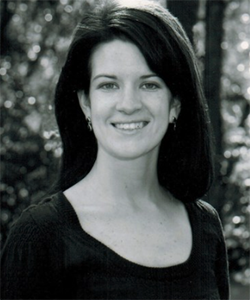Answering the question of social accountability in the Canadian medical schools
Inside job: Influencing changes within Canada’s health care system to ensure equity for Indigenous people

Dr. Rita Isabel Henderson
Dr. Rita Isabel Henderson
Recipient of a CIHR Postdoctoral Fellowship, Dr. Rita Henderson is an expert in Aboriginal Methodologies with the O’Brien Institute and Department of Community Health Sciences at the University of Calgary.
CIHR-funded researcher, Dr. Rita I. Henderson is investigating ways to engage stakeholders in Alberta’s Indigenous health community in order to identify key indicators and implement measures that evaluate the performance of large medical schools to gauge their social accountability to the First Nations, Métis, and Inuit (FNMI) communities they serve.
Engaged researchers like Dr. Henderson are hard at work answering the calls to action in the area of health issued by the Truth and Reconciliation Commission in 2015.
Informed by the determinants of population health, Dr. Henderson developed a system-based concept that crosscuts the teaching, research, and service activities of a medical school. Over the past 22 months, she conducted three smaller accountability projects that gathered the evidence needed to spur educators, researchers, service providers, and administrators to develop a coordinated, impactful response to the needs of diverse FNMI populations. Data was collected from medical schools at the University of Calgary and University of Alberta.
Dr. Henderson examined their preparedness to practice with Indigenous clients by surveying undergraduate medical student bodies. She conducted qualitative ethnographic interviews with Indigenous students and graduates, and, as appropriate, with their community members. In addition, an ethnographic case study was undertaken assessing the effectiveness of outreach initiatives at the Elbow River Healing Lodge. The Lodge is a primary care clinic serving urban FNMI populations in Calgary.
Investments in researchers like Dr. Henderson’s are a testament to CIHR’s commitment to population and public health research that makes a difference in the lives of members of our Indigenous community, as they continue on their path to achieving good health and well-being.
“The Institute for Aboriginal Peoples’ Health has been fundamental in supporting career development that encourages a resiliency and wellness focus, preparing me for a career engaging non-Indigenous and Indigenous peers alike in critical, transformative research. I recently attended the Institute’s New Investigators meeting, where I gained important insight into competition processes, and look forward to playing a supportive role in Alberta’s upcoming Indigenous mentorship network, the AIM-HI.”
The World Health Organization defines the Social Accountability of Medical Schools as:
“the obligation to direct their education, research and service activities towards addressing the priority health concerns of the community, region, and/or nation they have a mandate to serve. The priority health concerns are to be identified jointly by governments, health care organizations, health professionals and the public."
Source: World Health Organization
- Date modified: